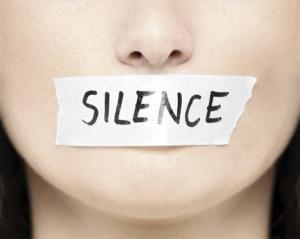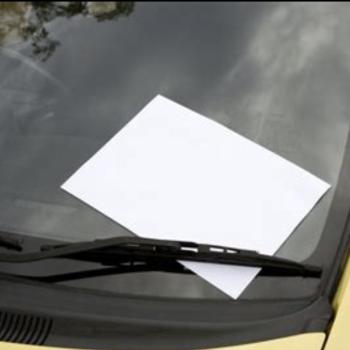Woe is me, I am doomed! For I am lost; I am a man of unclean lips,
living among a people of unclean lips; yet my eyes have seen the King, the LORD of hosts!
-Isaiah 6:5
This is the translation of Isaiah that I’m most familiar with – I am lost, ruined, defiled, doomed – but I froze in my tracks when I saw Young’s Literal Translation:
Woe to me, for I have been silent
I stared at that for a long time, goosebumps undulating up and down my arms. I tweeted out and posted on FB for help: Hey, my peops who know Hebrew, does the Hebrew support this? Answers started coming back quickly. From a former student at the Hebrew Academy:
The word is “נדמיתי” (from the root “נדם“/”silence”), so I’d guess so.
From a Catholic, Maybe something like “I’m at a loss for words?”
Maybe, but ‘Woe to me, for I have been silent,’ shook me to the core, because I know the times I have not spoken or turned my head away:
- It’s not my problem
- If I get involved in that fight, I’ll make it worse
- If I step in, will it help or hurt the child?
- I converted out of Islam, let them handle it
- I don’t have any change, so I’ll just walk on by – conversely, if I put some loose change in their cup or bowl, I’ve done my bit
- Someone else will speak up
- There’s no point, no one will listen anyway
- You know, I could say something, but they really deserve to trip over that obstacle and fail
- Why say anything? They’re irredeemable; let them burn
For someone who prides herself on speaking out, Woe to me, for I have been silent when it mattered, when speaking truth to power didn’t seem to matter because it wouldn’t make a difference, when not getting involved seemed safer, and yes, when I harboured resentment towards my past and thought, ‘Let them deal with their crap. I left.’
I am a person of unclean lips for I have torn down others; I have offered cynicism when hope was most needed; I have spoken words of vengeance rather than reconciliation.
What about you? When have you also kept silent or turned away or expected someone else to take up the mantle of truth? You are not alone; we are kindred spirits in this.
And what about us, as a collective? We so often turn to each other and say, ‘There are so many more of us than them,’ yet their voices of burning resentment, anger, and hate fill and form our world, while we fight each other and abdicate the public arena.
As I write this, we have a rabbinic answer about the translation, so please pardon the aside. From Rabbi Danya Ruttenberg:
So the level of “the root is דמה״ vs “the root is דמי״ is deeper grammar stuff than I go—this one biblical dictionary & a couple translations I know hold by the former, which would be “ruined/lost”; I assume that’s correct. The “silent” would be if it’s the latter. I imagine your silent translator thought it was דמה…which is too bad, because that’s the root in still small voice (quiet thin voice), so that would be cool, but I think is incorrect.
How do we bring them together? One answer is that when we do not speak the truth that sets us all free —against any kind of oppression: slavery, racism, xenophobia, poverty, colonialism —we are lost/ruined indeed. There are, of course, other answers, but I’ll leave you to search them out.
None of this means there isn’t a time for silence: our action should arise out of that deep stillness rooted in G-d and prayer; it is better to keep silent than lash out; and it is against the background of silence that the truth can emerge.
The truth is not our unfiltered inner patter; it is not telling someone exactly what we think of them; and it most certainly is not what most often passes for mission or ‘sharing the good news’ —which is essentially colonialism in a cassock, trying to make humanity in our own image. The truth, however hard to hear, always points towards freedom, for ourselves and others, and our voices and actions must ring with it until it fills —and transforms — the world.
Let us pray:
O seraphim, bring the hot coals from the altar to our lips, cleanse us, and burn away all that stands between us and the truth and all that keeps us from opening those lips to speak it. Take away our guilt; forgive our sin.
Lord, let us speak the truth that heals and sets free; and seal our lips over the lies that would wound and imprison.
Give us the courage to speak and act the truth, even — especially — when it would cost us everything.
Help us to give voice to the voiceless.
May we always speak truth to power, not power to truth.
Imperfect, messy beings that we are, imperfect and messy as our love is, lift our work always to do the good You would intend.
And when you ask, ‘Whom shall I send, and who will go for us?’ give us the boldness and resolution to say, ‘Here we are. Send us.’
In the name of You who created us; in the name of Your Son, who lived with us and died for us; in the name of the Holy Spirit who breathes Your love and essence through us so that we may do Your work.
Amen.
Irim Sarwar is an American of IndoPak ancestry now living in the UK who was born Muslim and became Catholic via teaching at a Modern Orthodox Jewish school. She has also catalogued books in a Dominican priory, worked in quality assurance, and is currently a churchwarden and freelance copyeditor/proofreader. Spiritual mongrel. Believes in hybrid vigour in all things, especially journeys of faith.













